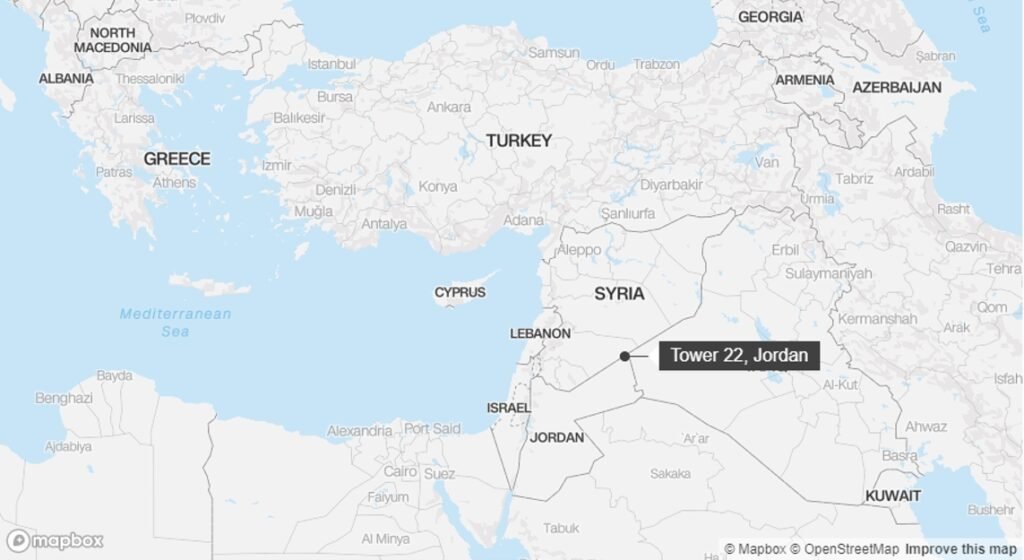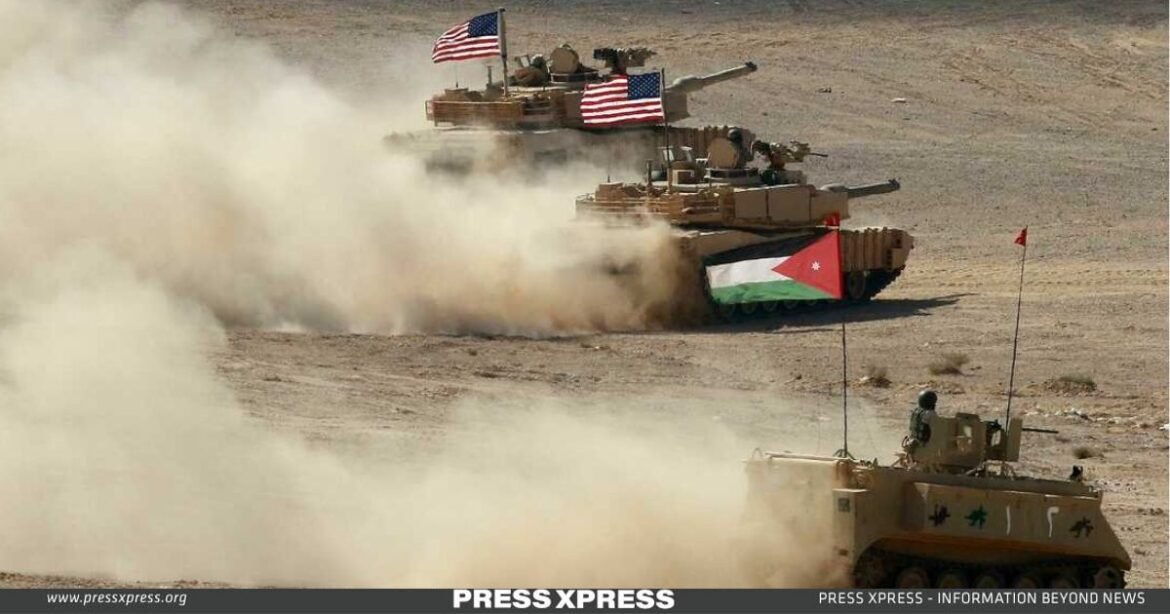Three US Army soldiers lost their lives and at least 34 others were wounded in a drone attack carried out by militants with ties to Iran in northeastern Jordan, close to the Syrian border, as confirmed by President Joe Biden and US officials on Sunday, October 28, 2024. This incident marks the first lethal assault against US forces since the outbreak of the Israel-Hamas conflict in October and represents a significant escalation in the already tense situation prevailing in the Middle East.
Over 150 incidents involving rocket, missile, and drone attacks on US forces in the Middle East have occurred, yet the first-time casualties among US troops occurred during the overnight strikes.

“We will hold all those responsible to account at a time and in a manner of our choosing.”
Joe Biden, US President
President Biden remarked in a statement, “Although we are still piecing together the details of this assault, it is evident that it was orchestrated by militant groups supported by Iran, operating within Syria and Iraq.”
You can also read: Dhaka Applauds ICJ Ruling Against Genocide, Stands in Solidarity with South Africa

Jordan Drone Strike Response
In a statement released Sunday, US Central Command (CENTCOM) confirmed that three service members lost their lives and at least 34 others sustained injuries in a drone strike directed at a base in northeast Jordan. CENTCOM reported that eight of the wounded were evacuated for advanced medical care.
As service members continue to seek treatment for symptoms indicative of traumatic brain injury, officials anticipate a rise in the number of casualties. The tragic incident, which occurred at Tower 22 near the Jordan-Syria border, marks a significant escalation in the already volatile Middle Eastern region. Authorities believe the drone responsible for the attack was launched by militants supported by Iran, originating from Syria. However, the specific militia group accountable is yet to be determined.
During a speech in South Carolina, President Joe Biden assured a firm response, promising accountability for those behind the attack, pending further investigation. “These brave service members exemplified the finest qualities of our nation: courage, dedication, and sacrifice for the greater good. Their unwavering commitment to safeguarding fellow Americans, as well as our allies, in the ongoing fight against terrorism, will not be forgotten. Rest assured, we will hold the perpetrators accountable on our terms,” President Biden declared.
On the other hand, Iran promptly refuted any involvement in the assault, as reported by state news agency IRNA, citing the nation’s UN mission. The denial from Tehran followed a statement by the Islamic Resistance in Iraq, a coalition of Iran-backed militias, claiming responsibility for attacks along the Jordan-Syria border, including the Al-Rukban camp close to US outpost Tower 22. However, this declaration preceded the confirmation of the three service members’ deaths by US authorities.
Iran-Backed Militias Escalate Attacks
Iranian-backed militias have targeted American military installations in Iraq and Syria over 60 times, resulting in over 90 attacks. The recent attack in Jordan was the first to cause American casualties and injuries. The loss of three US servicemen, with numerous others wounded, adds immense pressure on President Joe Biden, intensifying scrutiny on his leadership. This marks the first instance of American troops falling to enemy fire since the eruption of the Israel-Gaza conflict.
This significant escalation appeared almost inevitable given the series of attacks on US military bases in Iraq and Syria by Iran-backed militias since mid-October, resulting in escalating casualties among American soldiers. In response, the US has conducted retaliatory strikes in both nations. However, the current situation compels the US to weigh the option of holding Iran directly accountable, a move fraught with considerable risk and implications for further escalation.
“We will ensure accountability for all those involved, at a time and manner of our choosing,” issued the US president in a vague yet pointed warning. The imperative for the US to visibly enhance the protection of its military personnel is now evident. Critics of the president are likely to exploit this crisis to accuse him of being weak on Iran. Yet, his administration has prioritized avoiding entanglement in protracted conflicts with clearly defined boundaries to safeguard American lives.
Despite longstanding animosity between Washington and Tehran, both sides have thus far refrained from confrontation amid the current crisis. Iran, facing internal pressures, has refrained from direct retaliatory strikes against Israeli or American targets following the assassination of its senior Revolutionary Guard commanders, which it attributes to Israel. Instead, its recent response targeted what it deemed a “soft target” by striking what it claimed was a Mossad base in Iraqi Kurdistan.
While the US, supported by allies like the UK, leads efforts against the Houthi rebels in Yemen, attacks on vessels in the strategic Red Sea corridor persist. Now, the US must address Iran-backed factions in a manner that safeguards American interests without triggering further destabilization in the already volatile region.


